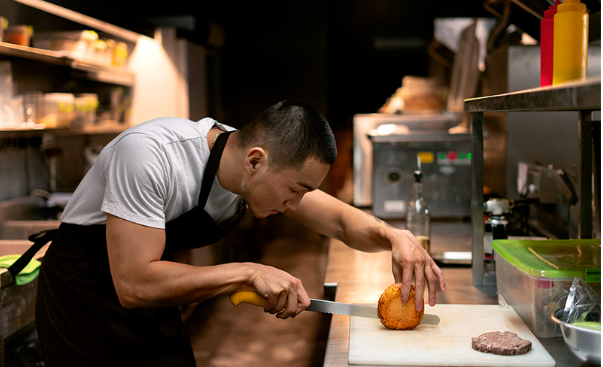The halal food market in Singapore is expanding rapidly, with bento-style meals being a growing segment. But, what many consumers do not see is the intricate supply chain that supports halal catering in Singapore, especially for bento catering. Every stage—from certification to logistics—must adhere to tight criteria.
Learn how the supply chain operates for halal catering and why precision and compliance are essential for this catering type.
Ingredient Sourcing and Certification
The supply chain begins with ingredient procurement. All raw materials used in halal catering must be sourced from suppliers certified by recognised halal authorities. This ingredient list includes not only meat but also seasonings, oils, sauces, and even food additives. Importers and wholesalers often work with international partners from countries with established halal certification bodies, such as JAKIM (Malaysia) or MUI (Indonesia). The Islamic Religious Council of Singapore (MUIS) certifies businesses and ingredients for local sourcing, ensuring compliance with Syariah requirements.
Verification is ongoing, not a one-time event. Halal-certified bento caterers must maintain a chain of documentation—purchase orders, delivery receipts, and halal certificates for every item—so that full traceability is possible in the event of an audit.
Kitchen Handling and Segregation
Halal certification extends beyond ingredients—it governs processes as well. For instance, in halal bento catering, kitchens practise strict separation between halal and non-halal items. Dedicated utensils, cookware, workstations, and storage areas are mandatory. Cross-contamination can result in immediate de-certification, damaging both reputation and client trust.
Staff training is a key part of this phase. Halal kitchen workers must understand food hygiene protocols and the religious reasoning behind halal handling. This approach ensures consistency even during high-volume orders.
Packaging and Labelling Protocols
Packaging is not just about aesthetics—it also serves a regulatory function. Packaging materials in halal bento catering in Singapore must be food-safe and free from animal-derived coatings or inks that could compromise halal status. Labels must clearly indicate the halal certification, use-by date, and contents, particularly for customised orders involving allergens or dietary restrictions.
Additionally, many providers now opt for tamper-evident seals and eco-friendly options, aligning with religious requirements and environmental considerations. Bento boxes are also colour-coded for events or mass distribution to prevent any misdelivery or confusion.
Distribution and Cold Chain Management
Halal-certified bento catering requires strict temperature control, especially when orders involve perishables. Most caterers rely on refrigerated vans or insulated containers to maintain the cold chain from kitchen to customer. This approach is vital for food safety and to maintain the integrity of halal-certified status throughout transit.
GPS tracking and digital proof-of-delivery systems are increasingly integrated into the logistics chain, offering transparency to both corporate clients and regulatory authorities. Some providers go as far as deploying mobile kitchens or setting up on-site distribution points for large-scale events to ensure timely and compliant delivery.
Audits, Inspections, and Compliance
The final layer of the supply chain is compliance management. MUIS and other halal certification bodies conduct both scheduled and surprise inspections to ensure that standards are upheld. Any lapse—whether in documentation, kitchen handling, or supplier vetting—can result in suspension or revocation of certification.
Many businesses offering halal catering also hire internal compliance officers who oversee daily operations and ensure all processes align with the MUIS Halal Quality Management System (HalMQ). Technology platforms are also used to log and track certification renewals, supplier changes, and hygiene reports, creating a more transparent and accountable system.
Conclusion
Behind the scenes of bento catering in Singapore is a complex supply chain that requires discipline, transparency, and religious understanding. From ingredient procurement to final delivery, every touchpoint is subject to halal norms and logistical discipline. As demand for halal bento catering grows, only companies with good supply chain integrity will be able to fulfil the changing expectations of both clients and authorities.
Contact Orange Clove to discover a reliable partner for your corporate or event catering.


